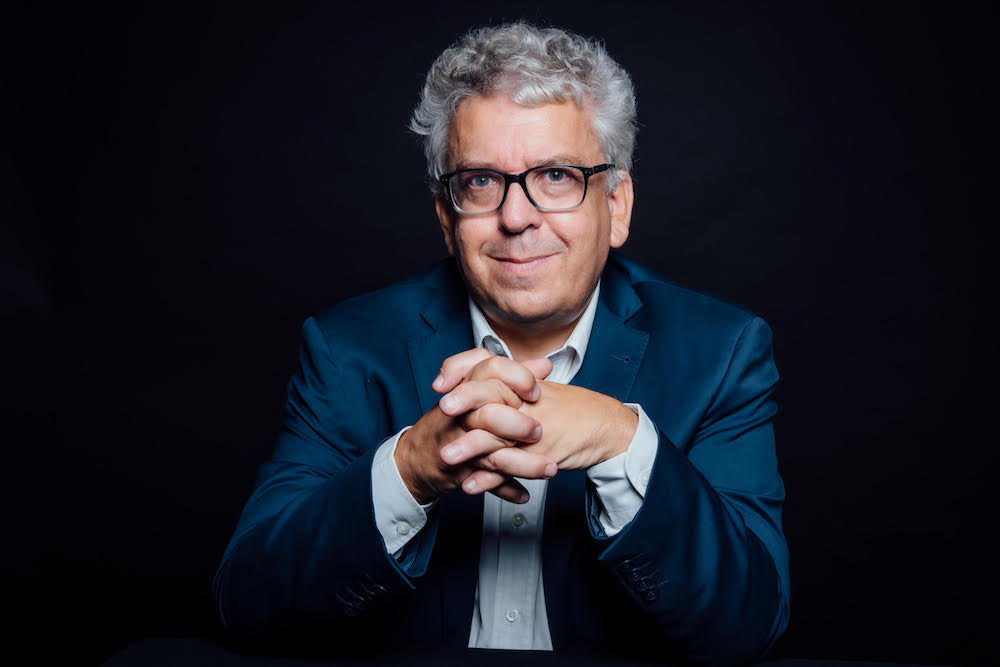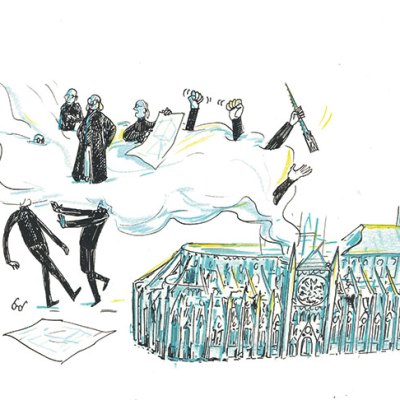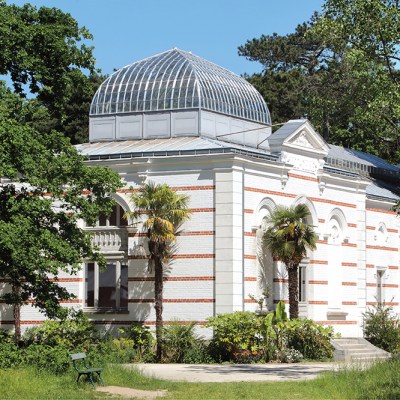It was the Louvre’s plans to open a satellite museum in Abu Dhabi that thrust Didier Rykner into the spotlight. Back in 2007, the news caused an uproar in France’s art world. An opinion piece in Le Monde provocatively titled, ‘Our museums are not for sale,’ was swiftly followed by a petition launched by Rykner, up until then a more-or-less unknown amateur art historian who ran his own website called La Tribune de l’Art. The petition took off, garnering more than 4,500 signatures (at the time an impressive number) and making Rykner the face of opposition to the plan. ‘The Louvre is no longer a museum; it’s become a commercial franchise,’ he wrote in his book Le Spleen d’Apollon a year later. Soon the international press came calling: he appeared in the columns of the BBC, the New York Times and the Los Angeles Times – and hasn’t really stepped out of them since.
‘What I do is engaged journalism, clearly. But I care about heritage, not politics. I take swings at the left and at the right,’ Rykner tells me from the Tribune de l’Art office in central Paris. He’s proud of his non-partisan stance and, admittedly, his frequent tirades against the establishment don’t seem to consistently land on one side of the political divide. Among those who have been speared by his criticism are Nicolas Sarkozy, Emmanuel Macron and Anne Hidalgo, the Socialist mayor of Paris. ‘They just don’t do their jobs!’ he rages, raising his hands despairingly. ‘They don’t protect heritage like they should.’
Rykner certainly doesn’t mince his words. His columns can be eye-poppingly sarcastic, teeming with trenchant put-downs of government proposals and the people making them. One recent column started brightly, ‘The Anne Hidalgo-style transformation of the Place de la Concorde is underway!’ Before adding, ‘In other words, the ongoing massacre of this square by Paris City Hall.’
He doesn’t like being called an activist, though: ‘Activists throw soup at paintings in museums. I’m not an activist – I’m a militant for the heritage cause.’ La Tribune de l’Art proudly asserts that its militant brand of journalism has helped to draw attention to the damage being caused by ‘love locks’ on Paris’s bridges and stop the destruction of various heritage sites, such as a 19th-century church in the town of Arc-sur-Tille, among other triumphs.
He’s been the bête noire of a succession of culture ministers: Aurélie Filippetti (Rykner wrote a column titled, ‘Good riddance!’ when she stepped down), Franck Riester (who ‘doesn’t understand his role at all’) and Roselyne Bachelot (her time in office summed up as ‘an enormous disappointment’). Fortunately, he doesn’t care about making friends, saying that he’s happy if the Ministry of Culture or Paris authorities don’t like him. ‘If they don’t like me, that means that I’m bothering them and stopping them from doing what they want.’
Rykner is many things: a stick-in-the-mud, a reactionary against seemingly any cultural reform and a relentless complainer – but also a passionate art historian who commands a huge amount of respect in the field, in large part for his investigative work. In 2021, he published a painstaking 13-part investigation that revealed the significant environmental and heritage damage caused by a project to turn the Provençal castle Château de la Barben into a theme park. The businessman behind the plan, Vianney d’Alançon, managed to raise more than €6 million of public money. The story reached a conclusion of sorts this year: in February, a French court asked d’Alançon and the business group behind the project to pay €90,000 in damages for unauthorised building work.
Rykner has a talent for unveiling the decisions made behind museums’ closed doors, long before they’ve been made public, through his wide network of sources. Frédéric Mitterrand, the minister of culture under Nicolas Sarkozy’s government, memorably said of Rykner in Le Figaro, ‘I felt that whenever I so much as emptied my wastepaper bin, he knew about it!’
But Rykner didn’t originally set out to work in the culture sector. He studied agronomy and engineering, before getting an art history degree from the prestigious École du Louvre. The problem was that he didn’t want to be a curator – in part because of the poor salary prospects, but also because he may have had to work outside of Paris, which for this born-and-bred Parisian was unthinkable. So he got what he calls a ‘normal’ job, as a consultant at La Poste, and wrote about art in his spare time. He created La Tribune de l’Art in 2003 and earned himself a small but loyal following, before deciding to dedicate himself full time to the website in 2007 – which conveniently coincided with the enormous media buzz around his Louvre petition. Now, he employs three people and advertising space on the site is regularly snapped up by France’s major art institutions.
The website’s success is undoubtedly due to Rykner’s energy, which oscillates between vexation or passion, and which he ploughs into his work. When we spoke, he had already given interviews to several radio stations that morning about the furore over Nôtre-Dame’s stained glass windows, had several articles to write and was preparing to record a podcast. Some articles on the website now have an English translation – he’d like to set up an Italian version too – and he’s working on more video content. ‘Time, unfortunately, is not extendable,’ he sighs.
And what does he think about the Louvre-Abu Dhabi partnership, 17 years on – a polemic that helped make his name? ‘I think it’s a bad treaty, but it was signed, so we have to respect it,’ he says. His stance on these agreements hasn’t changed: Abu Dhabi, the Louvre-Lens satellite museum and the new contemporary art museum being built in Saudi Arabia in partnership with the Centre Pompidou will all intensify competition with French museums and send France’s cultural treasures outside the country on long loans.
Rykner wants to keep things where they are and as they were – and even goes so far as to suggest that every building built before the 19th century should be protected. ‘I fight to save architectural works of art. If we live in an environment where there are no more historical monuments, where there’s nothing left, then there’s no point.’ And there’s no question of slowing down. In France, there are always battles over heritage protection to be won.



